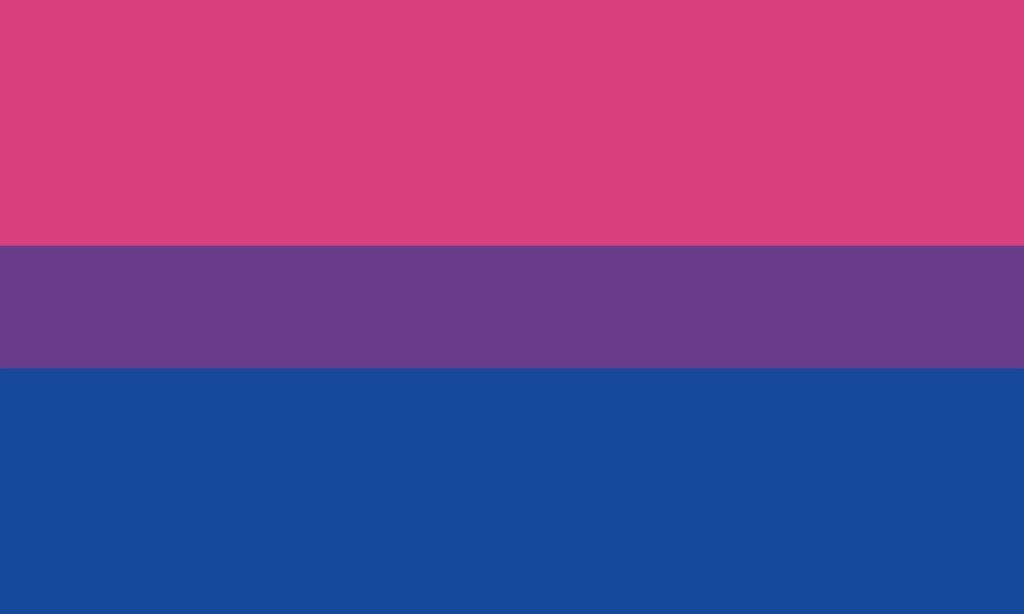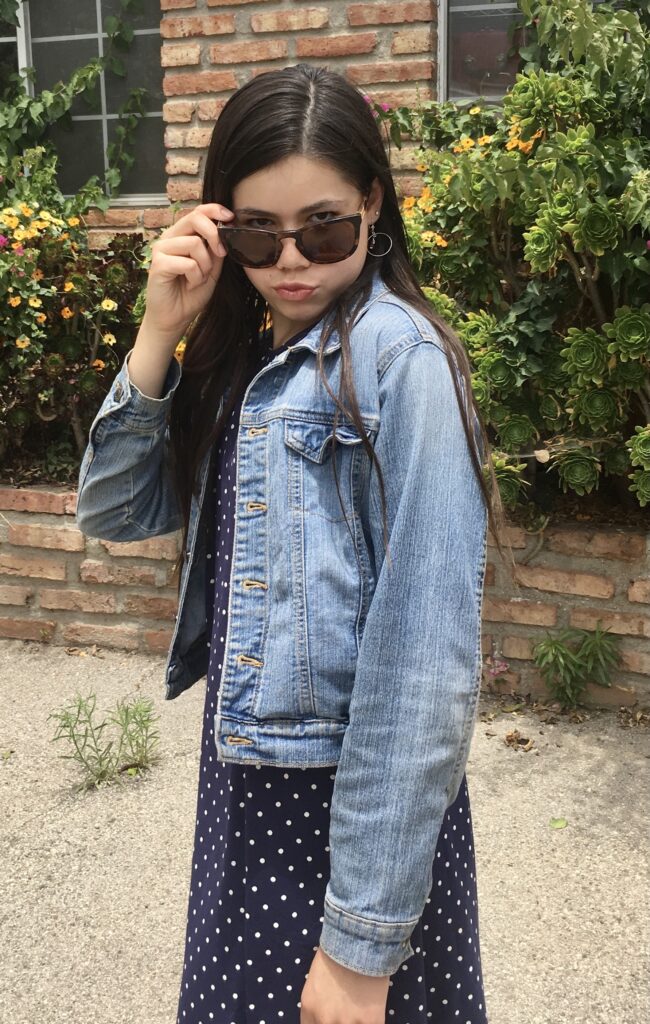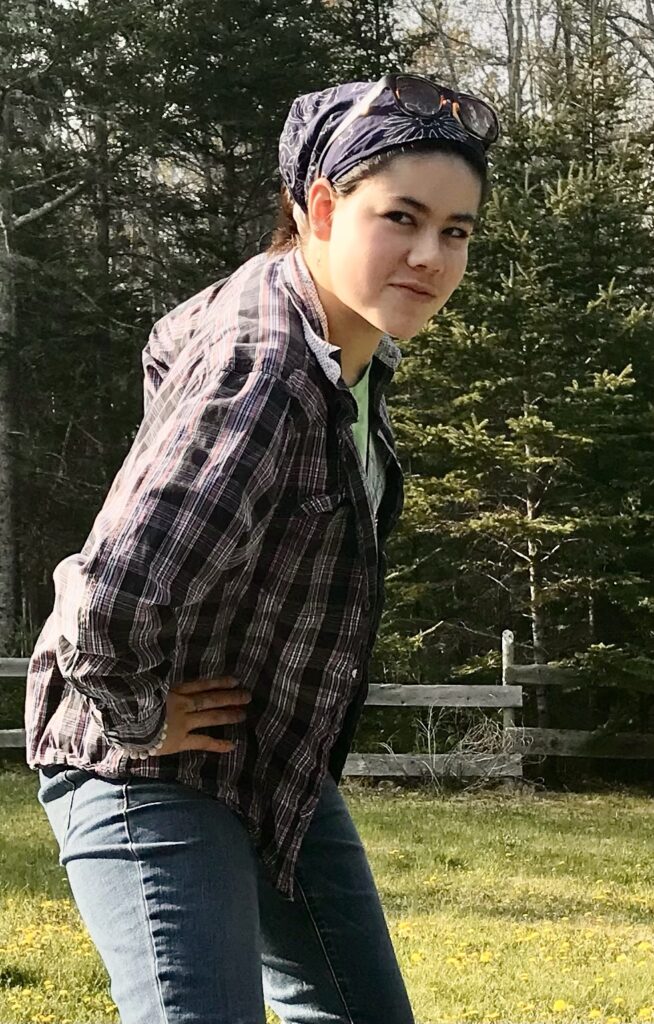It’s the last day of pride month, and I wanted to share this blog with y’all.
There are many different parts of my identity. I’m a girl, I’m autistic, and I’m also biracial. Those are all important parts of myself that I’ve always been very open about. Something that some people might not know about me is that I am also bisexual.
If a person identifies as bisexual, it means that they are attracted to more than one gender. It can mean just two genders, or it can mean more than two. Four years ago, I came out as bi to my family and close friends.

In sixth grade, I learned about the LGBT+ community and a bit about what the label “bisexual” meant. I realized that I was attracted to other girls, as well as boys, when I met a girl at my school in seventh grade, who I’ll call Liana. Liana was a few months older than me and, since I saw her at breaks and PE class, I got to talk to her a bit. I started to develop a crush on her. It was my first time knowing that I had a crush on a girl, and it was a big deal to me. I constantly wrote in my diary about my huge crush on Liana.
I suspected that maybe I could be bisexual, but it was only one crush. I didn’t know if I was really bisexual or if it was just a “girl crush,” like some people refer to a girl having a crush on a girl in a non-serious or platonic way. I wonder though, if a girl had a crush on a boy for the first time, would it be called a “boy crush?” It seems a bit like a double-standard to me.
Soon enough, I realized that the label “bisexual” fit me. I was attracted to both boys and girls, and I realized it was part of who I was. While not everyone likes to identify with labels, knowing there was a name for how I felt was amazing, and knowing there were other people like me was amazing too. It’s similar to how I feel knowing that I’m autistic and that there are a lot of other people out there who think like I do and experience some of the same things. Before coming out to other people, I had to come out to myself, which meant embracing it as a part of who I am. I don’t see “bisexual” as a bad thing. It’s just a part of me, like having brown eyes or glasses. I also learned that it was always a part of who I am, but I just had a name for how I felt.
I told my classmate and friend, Cady, about my crush on Liana. They were supportive, and they didn’t judge me for having a crush on another girl. Though they were a bit unsure what to make of it when I told them I had a crush on a girl, Cady was supportive and they sometimes teased me about my crush on Liana in probably the same way that they would’ve had my crush been on a boy. Even though some people find it unusual for a girl to have a crush on another girl, talking to my friend and having them tease me about my crush made me feel like I was just a normal teenage girl who had a big crush on someone and had no idea how to flirt.
When I learned that I was going to be in the same class as my crush, I was so excited. I wrote in my diary about how excited I was to be in the same class as her, and how I hoped to get to know her better.
On my first day of classes with Liana, I was so nervous and excited. That day, I made sure to pack my hairbrush and lip gloss so I could look nice for my first class with her. I told Cady about how excited I was, and they were excited for me! While we were in the middle of class, Cady whispered in my ear, jokingly, “When’s the wedding?”
However, I learned that when I spent time during break and transition period primping for my class with Liana, it made me late to class. My teacher let me know that she noticed that I was late to my classes and told me that I should stop primping before class. It was rather embarrassing having my teacher point this out to me. Caring for my appearance is important, but it shouldn’t be prioritized above everything else and it shouldn’t be all about trying to impress another person. After a while, I lost interest in Liana, but I’ve had plenty of other crushes to replace that one!
I feel fortunate to have friends and family members who are understanding and accepting, and when I shared that part of my identity, I was at a place in life where it was safe for me to come out. However, that’s not the same for everyone. Many people don’t understand what it means to be part of the LGBT+ community, or they think it’s something wrong or shameful. I felt nervous posting this blog; I was worried that people wouldn’t want to hear what I have to say or they may judge me. However, those are not the people I want reading my blog or book or attending my presentations. By coming out and sharing my own story, I think I can help other people realize that they’re not alone.
It’s similar to how I learned how to share my autism diagnosis. If someone isn’t supportive of autistic folk, or they don’t want to hear about autism from autistic people, they’re not the people I want to be around. I’m not going to hide my autism diagnosis from anyone. However, for many people, it’s unsafe to be out as a part of the LGBT+ community. If they come out and live as who they are publicly, it could mean that they lose their job, friends, and family, or they could be exposed to external danger if they live in an unwelcome and unsafe environment. This is a huge problem because it means that people will be isolated and it affects their self worth. I think that if I had been raised in an environment where being bisexual was stigmatized, it would have tremendously affected my self esteem and self worth. I would have felt isolated and ashamed just because I’m attracted to more than one gender. It makes me sad to know that there are people like me who have to live in fear and can’t openly embrace who they are. In many parts of the United States, where I’m from, it’s becoming less safe for LGBTQ+ people to live authentically and be themselves, especially for transgender people.
I consider myself an ally to the transgender community, and I try my best to be open to learning so I can support the people in my life who are transgender. When one of my friends came out as transgender, I watched videos about what it’s like being trans and read books and articles.
Based on my experiences, here is some advice for embracing yourself and your identity and for being a good ally:
- Know that you are who you are, and you can’t change your sexual orientation or gender identity.
- You might change how you communicate your sexual orientation or gender expression, but you can’t change your identity. For example if a person comes out as bisexual but after a while they realize that they align with a different label, that’s fine.
- There’s no quota that you have to fill to be “bi enough.” You can prefer one gender more than the other, and all it means to be bisexual is that you’re attracted to more than one gender. Sometimes I wondered if I was an imposter because I didn’t fit a lot of the stereotypes associated with being bi.
- Find support networks online or with your friends.
- There’s no pressure on coming out. You can come out to people at your own pace.
- It’s okay if you don’t understand what it means if someone comes out to you, and don’t be afraid to ask questions about what it means.
- However, at the same time, some questions are just impolite to ask and shouldn’t be asked. If you don’t want someone asking you rude or overly personal questions about your romantic or sexual choices, activities, or identity, don’t ask those questions to other people.
- Do your research and watch videos, read books and articles about the LGBT+ community if you’re interested or confused.
- Depending on your relationship with the person who comes out to you, whether they’re a close friend or sibling, sometimes joking around about it breaks the ice and normalizes it. When my friend, Cady, teased me about my crush on Liana and we would talk about crushes together, it made me feel accepted and comfortable.
In my experience, I’ve learned that it’s important to embrace who you are and the many facets of your being. When you value and share your whole self, it can have a positive effect on you and people around you!

